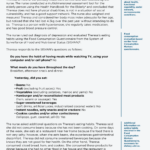Eduardo Algranti, Editor-in-Chief, Brazilian Journal of Occupational Health, São Paulo, Brazil.
Leila Posenato Garcia, Editor-in-Chief, Brazilian Journal of Occupational Health, São Paulo, Brazil.
Raoni Rocha Simões, Editor-in-Chief, Brazilian Journal of Occupational Health, São Paulo, Brazil.
Eduardo Garcia Garcia, Editor Emeritus, Brazilian Journal of Occupational Health, São Paulo, Brazil.
 Trajectory, Mission, and Metrics
Trajectory, Mission, and Metrics
The Brazilian Journal of Occupational Health (RBSO) has been published by the Fundação Jorge Duprat Figueiredo de Segurança e Medicina do Trabalho (FUNDACENTRO) since 1973. Having recently celebrated its 50th anniversary, the journal marks an important milestone achieved by few Brazilian scientific periodicals.
Its mission is “to disseminate original research articles on Occupational Safety and Health (OSH) that contribute to understanding and improving working conditions, preventing occupational accidents and diseases, and supporting public policy discussions and definitions related to the field” (SCIELO BRASIL, 2025).
RBSO is the pioneering Brazilian scientific journal dedicated exclusively to the topic of Occupational Safety and Health (Jackson Filho, et al., 2015). The journal joined the Scientific Electronic Library Online (SciELO) Brazil collection in 2012. As of 2025, RBSO is also indexed in other scientific databases such as Scopus, Red de Revistas Científicas de América Latina y el Caribe, España y Portugal (REDALYC), Literatura Latino-Americana e do Caribe em Ciências da Saúde (LILACS), and Directory of Open Access Journals (DOAJ).
As of July 2025, RBSO’s SCImago Journal Rank (SJR) was 0.325; its CiteScore was 1.6; its SNIP was 0.694; and it ranked in the third quartile among journals in the Public, Environmental, and Occupational Health category in Scopus (Garcia, Algranti & Simões, 2025). In recent years, RBSO has been among the 50 most-cited Portuguese-language journals across all scientific areas in Google Scholar Metrics (GSM), ranking 46th in 2025, with an H5 index of 22 and a median of 52 (GSM, 2025).
Although citation counts for occupational health articles are generally lower than for other topics in Public Health (Jackson Filho, et al., 2015), these indicators reflect RBSO’s growing national and international relevance, positioning it among the leading reference journals in occupational health in Latin America.
The GSM 2025, referring to the period 2019–2024, demonstrates RBSO’s reach: despite not yet being indexed in the largest international databases, publishing primarily in Portuguese, and releasing fewer articles than other Public Health journals, RBSO receives enough citations to rank among the most cited in its field. The journal also shows a consistent upward trend in article access, with an average number of views per published paper three times higher than the average rate for Brazilian Public Health journals (Garcia, Rode & Packer, 2024).
Journal Scope
The multidisciplinary nature of Occupational Safety and Health is reflected in RBSO’s publications. The most frequent topics in recent years include:
- Mental and psychosocial health in the workplace (occupational stress, burnout syndrome, moral harassment, quality of life, and well-being at work).
- Working conditions and physical disorders (work-related musculoskeletal disorders WRMDs, fatigue/exhaustion, workload, vocal health among teachers);
- Accidents and exposure to occupational risks (work-related accidents, exposure to biological and chemical agents – pesticides, benzene, and others). Since the pandemic, COVID-19 has also been highlighted within this topic.
- Management, policies, and prevention (occupational health surveillance, accident and disease prevention, work organization and management, ergonomic studies, interventions, and coping strategies).
- The most frequently studied occupational groups include health professionals, community health workers, teachers, public servants, industrial workers, rural workers, fishers, drivers, police officers, firefighters, and others.
For this Special Week of the SciELO in Perspective blog with RBSO, we chose to offer readers a sample of topics and modalities published in the last two volumes. These works address relevant and/or emerging themes within the journal’s scope. The ten publications that will be presented address the field of Occupational Health, going beyond the traditional perspective focused on chemical, physical, and biological risks. They offer contemporary approaches to the complex interrelationships between mental health, psychosocial risks, the meaning of work, the centrality of working time in workers’ lives, the appropriation of workers’ subjectivity as a management strategy, work organization, sociotechnological risks, job insecurity, work-related cancer, the solidarity economy, sustainable development, and climate change, as evidenced by the titles of the press releases to be published during the Week:
- Performance Evaluation Sets Unattainable Goals for Bank Workers
- Climate change impacts the health of agricultural workers
- List of Work-Related Diseases expands recognition of occupational cancer
- Neoliberal management of work-related psychosocial risks shifts responsibility onto workers
- Occupational Therapy helps rethink the centrality of work in people’s lives
- Endemic Disease Control Agents in the state of Rio de Janeiro fight for health
- Work Analyzing 30 Years of Accidents Brings New Perspectives to Industrial Safety
- A solidarity economy promotes mental health and social justice through an agroecological network
- Book reviews allow critical evaluation of reference works
- The emotional distress of funeral service workers during the pandemic reveals devaluation and invisibility
Professionalization, Visibility, and Internationalization Strategies
RBSO is a diamond open-access journal, meaning it charges no fees for submission, publication, or access to published content. In 2012, it began publication on the SciELO platform, and in 2016, it adopted continuous publication, becoming exclusively online.
The main publication language is Portuguese, but manuscripts in English and Spanish are also accepted. Currently, all published manuscripts are bilingual, in Portuguese–English or Spanish–English. To reinforce this strategy, the journal requested from the International Standard Serial Number (ISSN) Center the inclusion of its English alternative title, Brazilian Journal of Occupational Health (ISSN, 2025).
The year 2025 marks a milestone for SciELO Brazil journals in adopting open science practices. RBSO’s editorial policy already accepted articles previously published as preprints, encouraged open data practices, and required that the names of the responsible editors appear in approved articles.
A recent update to the editorial policy concerns the use of artificial intelligence (AI). In addition to prohibiting AI tools from being listed as authors, and authors are required to declare any use of AI at any stage of research or manuscript preparation.
RBSO promotes thematic dossiers with peer review to encourage debate and article submissions on relevant OSH topics. Its dissemination strategies include launching thematic issues, holding webinars, and promoting content to graduate programs and on social media.
The editorial board is extensive and diverse in gender distribution (44 members, 25 of whom are women), subfields of knowledge, and geographical institutional representation. Editorial professionalization is fostered through participation in scientific editing events promoted by SciELO and the Brazilian Association of Scientific Editors (ABEC-Brasil), of which RBSO is a member.
Current Challenges and Future Perspectives
Perhaps RBSO’s greatest current challenge is to increase the number of published manuscripts, essential for obtaining additional international indexations. Despite being indexed in SciELO since 2012, improvements in its Qualis Capes classification, and a relative rise in submissions, the acceptance rate remains below 10%, reflecting the insufficient quality of most submissions. The relatively smaller volume of scientific production in occupational health compared to Public Health as a whole, contributes to the lower number of published articles (Jackson Filho et al., 2015).
Another challenge faced by scientific journals, including RBSO, is obtaining high-quality ad hoc reviews in a timely manner. The number of invitations needed to secure a single review has increased over the years, affecting processing and publication times. The journal has implemented workflow adjustments that, together with actions by the editorial management team and associate editors, have helped reduce processing times (Garcia, et al., 2023).
By compiling and disseminating knowledge produced in Occupational Health over the past 52 years, RBSO not only chronicles the evolution of knowledge in this field but also provides a vital space for scientific reflection and analysis of contemporary work-related challenges and perspectives for addressing them.
It also contributes to the analysis and formulation of public policies aimed at protecting workers’ health, thus justifying its continuous pursuit of editorial improvement. In this regard, RBSO reaffirms its commitment to fostering and qualifying debate in the face of the rapid and intense changes in the world of work and scientific publishing.
Acknowledgments
To SciELO, for organizing the Special Weeks, inviting RBSO to participate, and providing guidance and review of materials produced for the event.
To the Fundacentro Institutional Communication Service, for drafting and revising texts (Cristiane Oliveira Reimberg, Karina Penariol Sanches, and Débora Maria Santos).
To the Fundacentro Courses and Events Service, for producing and editing audiovisual materials (Clodoaldo Caetite Novaes).
To the editors involved in article selection and mediation with authors, and for text writing: Cézar Akiyoshi Saito, Daniel Pires Bitencourt, Eduardo Algranti, Eduardo Garcia Garcia, José Marçal Jackson Filho, Juliana Andrade Oliveira, Júlio Cesar Lopardo Alves, Leila Posenato Garcia, Raoni Rocha Simões, Ricardo Luiz Lorenzi, and Tarsila Baptista Ponce.
To the authors and editors of the selected articles, for preparing texts and recording videos: André Guerra, Andréia De Conto Garbin, Carolina de Moura Grando, Cris Fernández Andrada, Daniel Pires Bitencourt, Eduardo Algranti, José Agnaldo Gomes, José Marçal Jackson Filho, Raoni Rocha Simões, Ricardo Luiz Lorenzi, and Ubirani Barros Otero.
To the RBSO Editorial Management and Executive Board, for coordinating and managing activities related to the Special Week (Cézar Akiyoshi Saito, Eduardo Garcia Garcia, Júlio Cesar Lopardo Alves, and Tarsila Baptista Ponce).
References
GARCIA L.P., ALGRANTI, E. and SIMÕES, R.R. RBSO in motion: legacy, transformations, and perspectives. Rev Bras Saúde Ocup. [online]. 2025, vol.50, p. eedfl1 [viewed 3 November 2025]. Available from: https://doi.org/10.1590/23176369/00125pt2025v50eedfl1.
GARCIA L.P., et al. Fiftieth anniversary of the Brazilian Journal of Occupational Health: celebrating the past and building the future. Rev Bras Saúde Ocup. [online]. 2023, vol.48, p. edcinq14 [viewed 3 November 2025]. https://doi.org/10.1590/2317-6369/nt123pt2023v48edcinq14. Available from: https://doi.org/10.1590/2317-6369/nt123pt2023v48edcinq14
GARCIA L.P., RODE S.M. and PACKER A.L. 50 years of RBSO, 25 years of SciELO, and 38 years of ABEC Brasil: contributions to open science. Rev. Bras. Saúde. Ocup [online]. 2024, vol. 49, p. edcinq19 [viewed 3 November 2025]. Available from: http://doi.org/10.1590/2317-6369/nt124pt2024v49edcinq19. Available from: https://www.scielo.br/j/rbso/a/QMM7NWvyGGyBCctzNpyPRML/
JACKSON FILHO, J.M., et al. From occupational safety and medicine to Occupational Health: history and challenges of the Brazilian Journal of Occupational Health. Ciência Saúde Coletiva [online]. 2015, vol. 20, no. 7, p.2041–2051 [viewed 3 November 2025]. https://doi.org/10.1590/1413-81232015207.05812015. Available from: https://www.scielo.br/j/csc/a/6wHFhMCMQg4SP8WYhCGH6dj/
External links
Google Scholar Metrics/Top publications – Portuguese
ISSN/Brazilian Journal of Occupational Health
Revista Brasileira de Saúde Ocupacional – RBSO
Revista Brasileira de Saúde Ocupacional (Fundacentro)
Revista Brasileira de Saúde Ocupacional – X
SCIELO BRASIL/ Brazilian Journal of Occupational Health
Como citar este post [ISO 690/2010]:



















Recent Comments